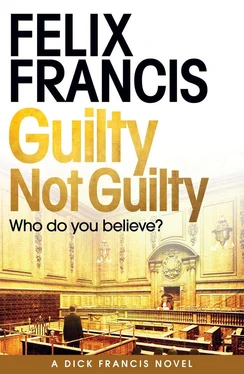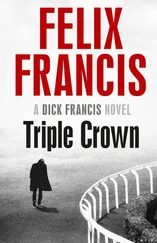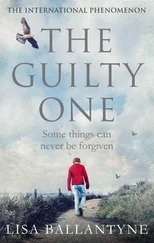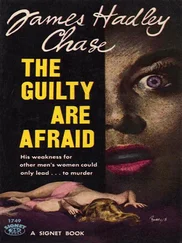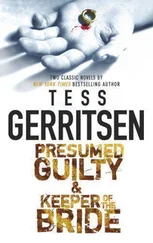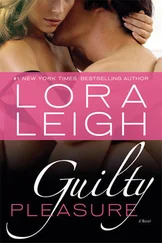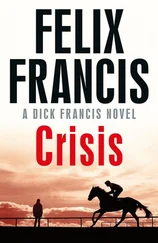As the detective sergeant had said, he was, indeed, a right slimy eel.
‘No,’ I replied strongly and loudly. ‘That is not what happened at all. The Fiat was almost stationary when it was struck from behind by another vehicle.’
The eel snorted his disbelief.
‘No further questions.’
He sat down and the prosecuting counsel made no move to stand up again.
‘Thank you, Mr Gordon-Russell,’ said the judge. ‘You may step down.’
In truth, I was somewhat disappointed. I’d been on a roll, and I’d been in the witness box for less than one day when I had quite expected to be there for much longer.
Clearly, so did the court, as the next prosecution witness had not been called to appear.
‘We will adjourn until ten o’clock on Monday morning,’ announced the judge.
‘All rise!’
‘Sounds to me like you did pretty well,’ Douglas said.
I had taken the train from Oxford to spend the weekend with my brother and we were talking through the events of the day over a glass of Rioja.
‘The defence barrister was a bit of a bastard.’
He laughed. ‘All barristers can be bastards when we need to be. It’s the defence’s job to throw doubt on the testimony of the prosecution witnesses.’
‘But he didn’t need to be so unkind about Amelia and her problems.’
‘From what you’ve said, I think he was quite mild. When I’m defending I can be far worse than that.’
‘Oh, thanks,’ I said. ‘Then I’m glad you weren’t there.’
He laughed again and we drank some more wine.
Whereas it would have been illegal for the prosecution to coach me as one of their witnesses in the case, there were no such qualms for my brother, the QC, provided we did not discuss the actual evidence.
Over the past few weeks, Douglas and I had spent quite a lot of time on the telephone together. He had taught me what to expect in the court, how to handle difficult moments, and to keep my composure at all times. His wide experience with juries had given me an insight into what they were looking for and how to present them with it.
Without his guidance, mine would have been a far more nervous performance.
‘How are things in general?’ Douglas asked. ‘Other than the trial?’
‘Much the same,’ I said. ‘I still can’t walk properly and no one will employ me.’
‘But they can’t still believe that you were responsible?’
‘No. I don’t think so. But it’s all to do with risk — all insurance is. They see it as a risk to employ me at the present time with all the publicity still going on. Who was it who claimed there was no such thing as bad publicity?’
‘Phineas T. Barnum,’ Douglas replied. ‘The American circus owner. It was either him or Oscar Wilde.’
I shook my head. ‘Oscar Wilde said that the only thing worse than being talked about is not being talked about.’
‘Same thing, surely. Or maybe it was Brendan Behan?’
‘Who?’ I asked.
‘Brendan Behan. You know, the Irish poet and playwright. Used to describe himself as a drinker with a writing problem. Claimed he drank only on only two occasions — when he was thirsty and when he wasn’t. And his favourite tipple was a mixture of champagne and sherry. Totally lethal.’
We laughed, and then took large sips of our own alcoholic beverages.
‘But, come to think of it, I’m pretty sure that Behan said that there was no such thing as bad publicity, except your own obituary.’
We both laughed again. It felt good.
Laughter had been in short supply in my life during the past eight months.
‘Anyway,’ I said. ‘Whoever said it was an idiot. All the fund managers are telling me to wait until the trial is over. Maybe things will settle down then, they say. Thank the Lord for Mary Bradbury, that’s what I say. Without her legacy I’d probably be losing my house by now.’
‘How about Amelia’s life insurance money?’
I rolled my eyes. ‘You know what insurance companies are like. They won’t pay out until the death certificate is registered by the coroner. And that won’t be until the inquest concludes, and that won’t happen until after the criminal proceedings are finished. They’ll drag it out as long as they can.’
‘So how did you have Amelia’s funeral without a death certificate?’
‘I applied to the coroner for a temporary one. That allowed the funeral to take place on condition she was buried and not cremated.’
He gave me a sideways look, which implied I was giving him too much information.
‘How about you?’ I said, changing the subject. ‘Have you seen your boys recently?’
He smiled broadly.
‘They were here last week for half-term. Charlotte came with them for some of the time.’
‘That’s great news.’
‘Don’t get excited. We’re not getting back together. In fact, she left a day earlier than originally planned because we found we couldn’t stand being together. Kept arguing over the smallest of things.’ He laughed nervously. ‘I’ve obviously got used to living on my own.’
I wished I could.
One of the main reasons why I had come to stay this weekend with Douglas in London was because I now found the Old Forge to be such a lonely place and I had thought that, after giving my evidence, I would have hated being alone there even more.
And I was right.
The experience had clearly affected me.
I had been building up to this day for so long, believing that it would be the decisive day in the trial, but, somehow, I felt it had been a bit of an anticlimax.
After going up to bed, now back in Douglas’s guest bedroom after the repairs from the water leak, I lay in the dark for a long time, worrying about it.
Should I have done more?
Could I have done more?
By the time I finally went to sleep, I had convinced myself that, in spite of Douglas’s help, I hadn’t done enough, and that Joe Bradbury would get off.
The very thought gave me nightmares.
On Saturday afternoon I went to the races at Sandown Park.
It wasn’t a spur-of-the-moment decision. I had been invited by the chairman of the Honorary Stewards Appointment Board to discuss my future, a move I had taken as being hugely positive, so I had accepted at once.
My legs were still not up to a journey to the Esher course by train as there was a good half-mile between the railway station and the racecourse entrance. So I booked a car with a driver, one who would wait and bring me back when I became tired.
I asked Douglas if he would like to come with me and, much to my surprise and delight, he agreed.
‘I’ve only been to a horse race once before in my life,’ he announced in the car on the way. ‘And that was to see you ride at Lingfield. Long time ago, now, mind. I was a junior in a trial at Southwark and it was postponed for a day due to a bout of sickness in the jury. So, in a moment of weakness, I caught a train from Victoria.’
I turned in my seat to stare at him. ‘You’ve never told me that before. Did I win?’
‘No,’ he said. ‘You were miles in front and I thought you were going to, but you fell off at the last fence.’
I remembered it well. Failures like that seem to stick in the memory longer than the successes.
‘I think you’ll find that the horse itself fell,’ I said. ‘Rather than I fell off it.’
‘Same thing, surely.’
No, it wasn’t , I thought. Totally different thing altogether. But, I suppose, the result was the same. And, in truth, it had been my fault. It had been early in my riding career. I could recall being so elated that I was about to win my first race that I hadn’t concentrated enough in getting my mount balanced for the last. And we had both paid the price, hitting the turf hard.
Читать дальше
